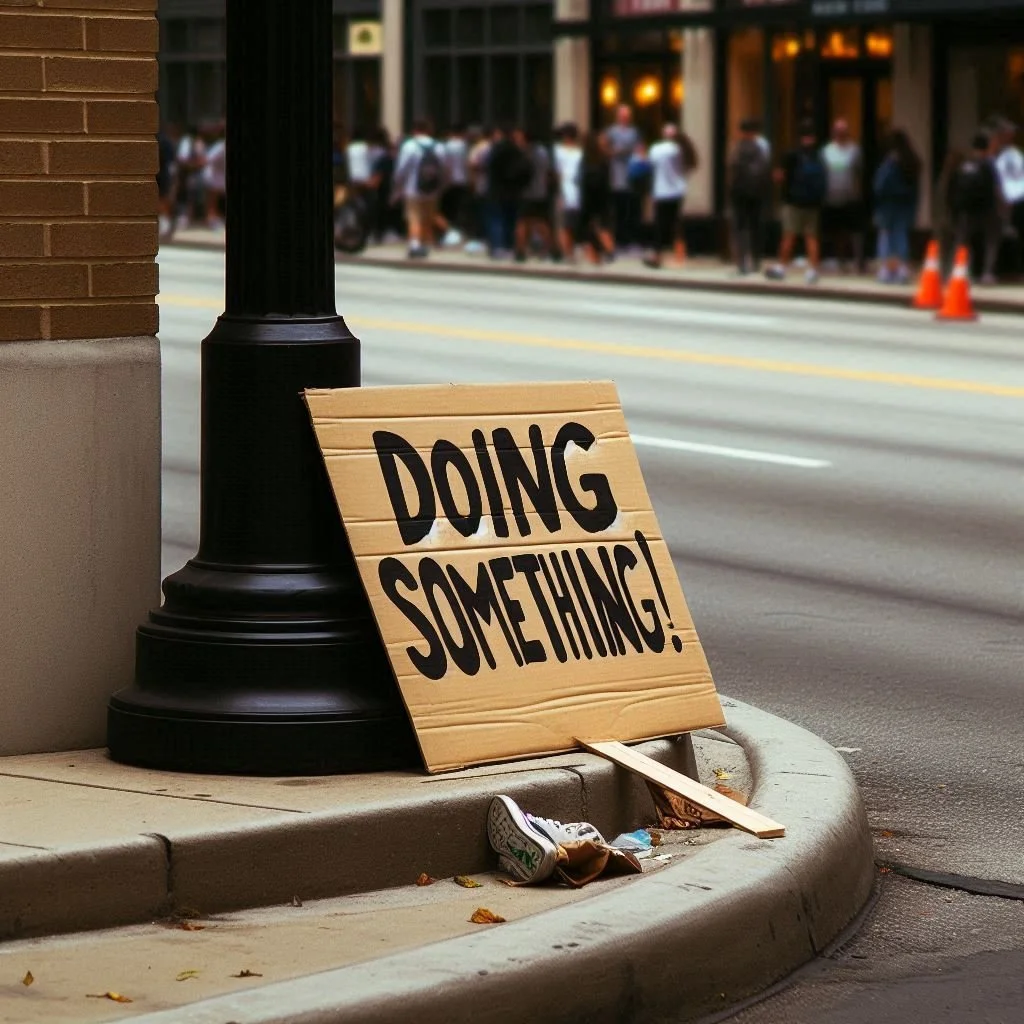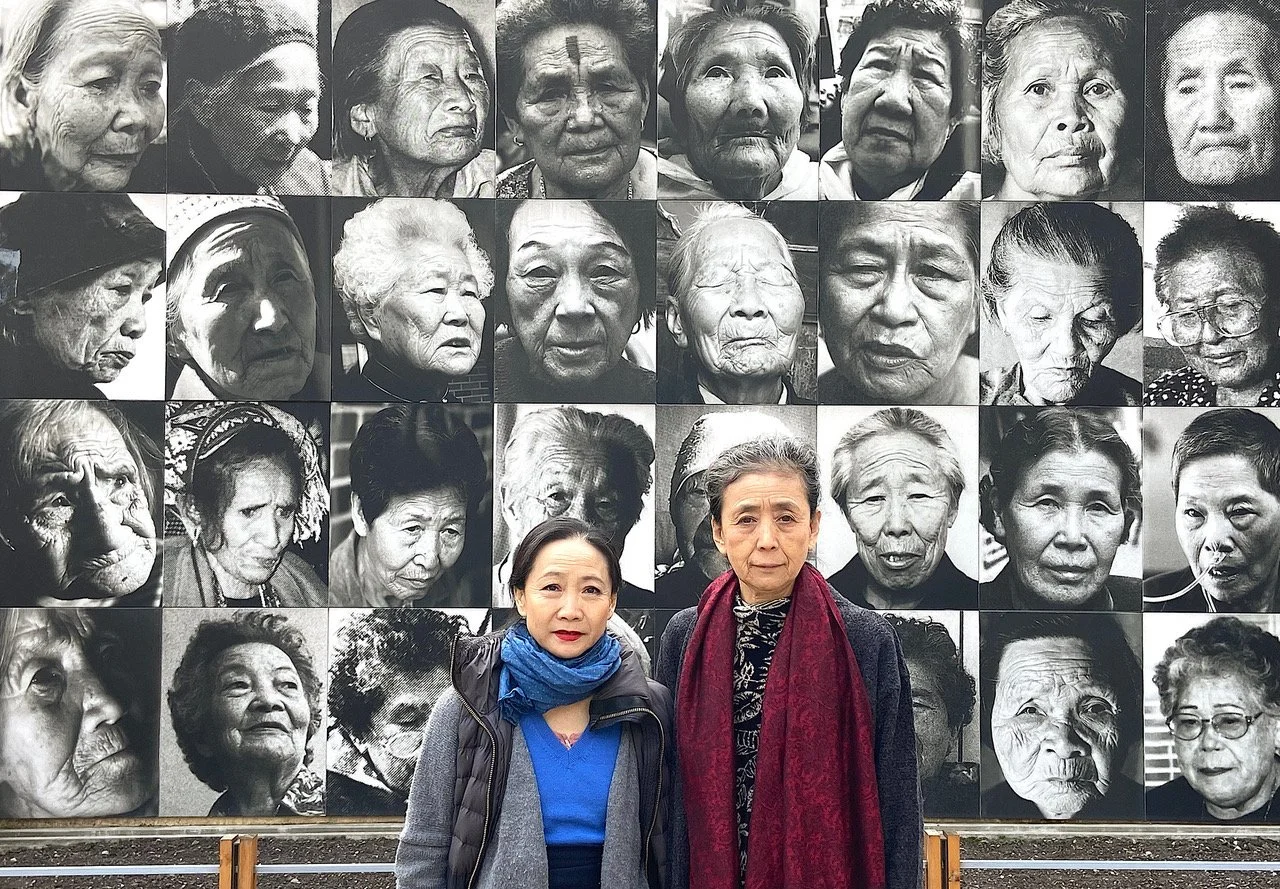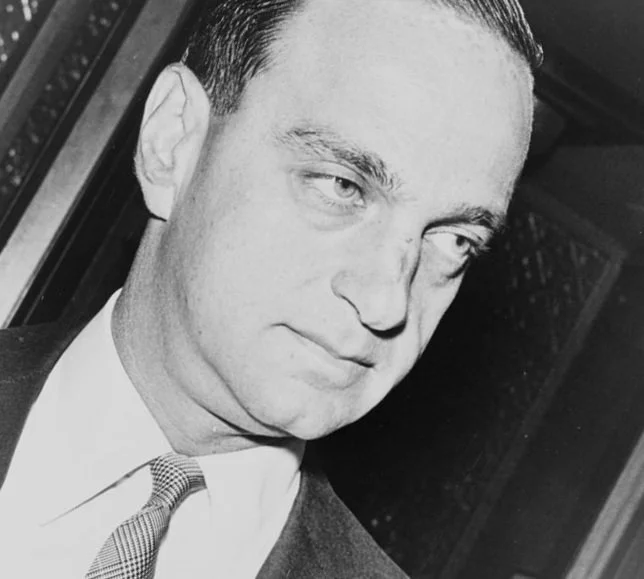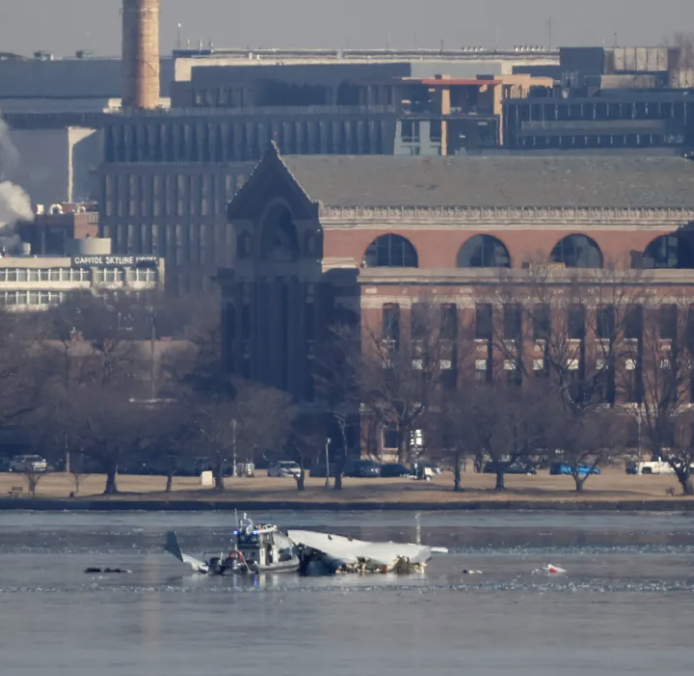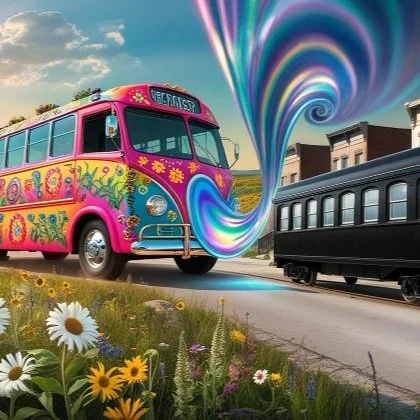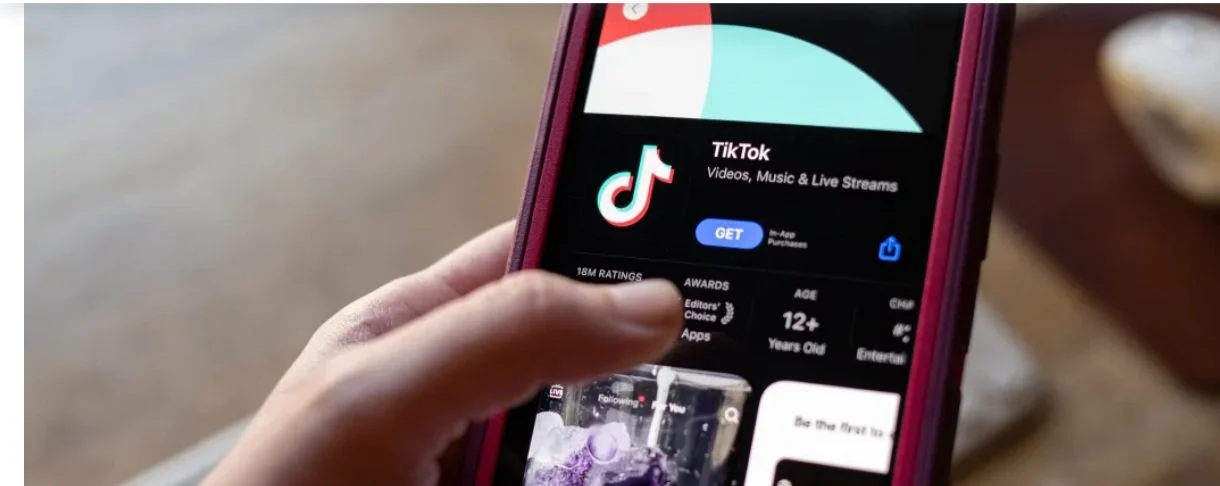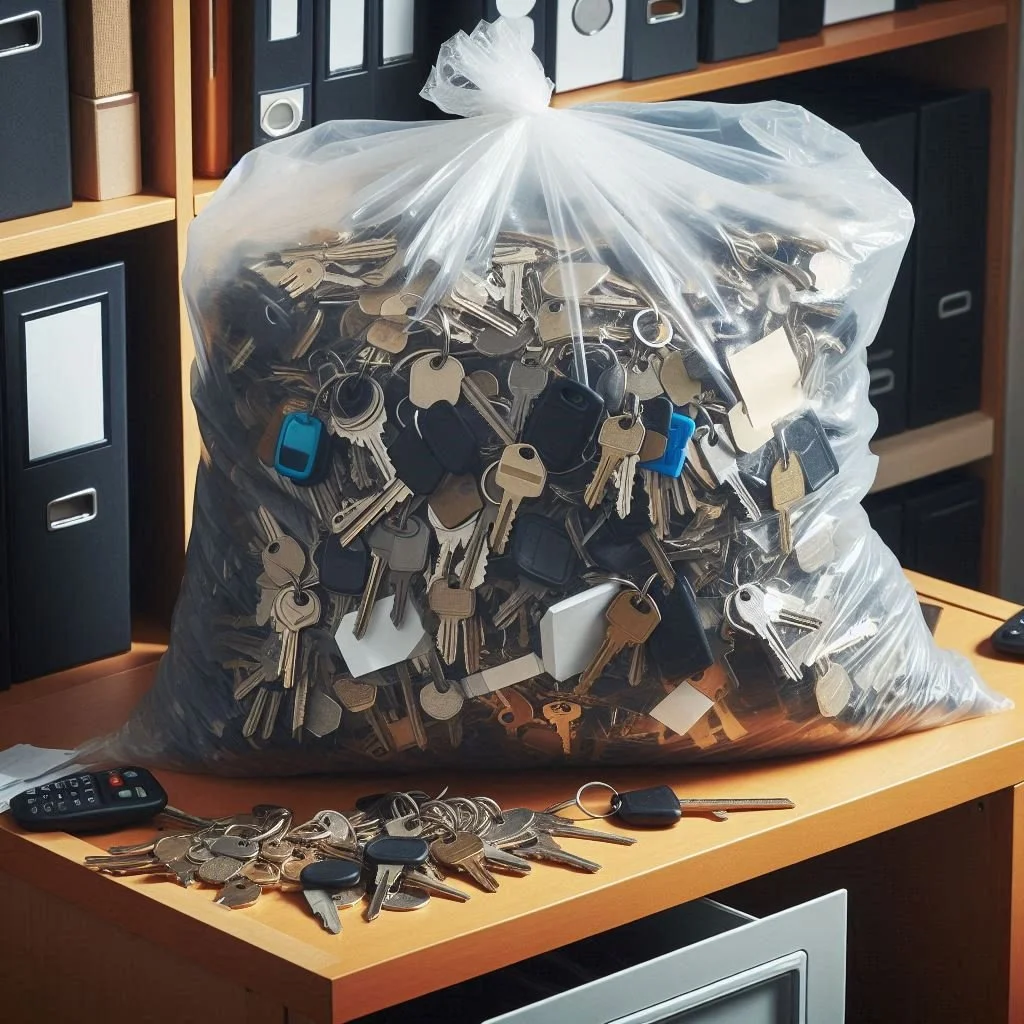What Can We Do?
I’ve signed up to go to my first protest demonstration on Monday. I’ll stand on a corner waving a sign. Earlier this week, I made my first financial donation to a Trump-fighting group. I’ve started regularly calling the office of my (cowardly Republican) senator.
I’m beginning to try to answer the question, at least for me, of what can we do?
Of course, for these last four weeks, it’s been easier to say, what can we do? How can we possibly deal with the onslaught that seems never-ending? With the accumulating day-to-day nightmarish realities? The zone indeed has been flooded, and we have felt overwhelmed. Recent national surveys report that nearly half of those who identify as Democrats say they feel “exhausted.”
So, it’s been easy to tune out, which I have done. . . .
What Was My Hurry?
By Jane S. Gabin
Regrets. I’ve had a few.
One would be rushing to complete my education. For some reason, I was raised to believe that it was better to graduate in three years rather than in four. So, at the age of 27, I found myself with a Ph.D. (in English) but little experience.
My culture also said, if you are not married, then nothing else matters. So, I stayed in school forever, it seemed, waiting for something or someone miraculous to occur.
I remember the day I was standing at the kitchen window contemplating my future. And I wept. I didn’t know exactly what I wanted, but I knew what I didn’t want. I was on track to become a secondary-school English teacher; somewhere along the way I was expected to “meet someone” and marry, then have children.
But I saw myself pushing a baby carriage on the streets of Flushing, NY. And that was my vision of hell. . . .
Democracy: A Song
Who would have thought it might seem necessary to stand up, speak up—and sing out—to protect democracy here, in the United States of America?
Words and music by Bill Weeden, David Finkle and Sally Fay.
Click here to view.
Hold Hands and Make It Through
I was raised by wolves. My older brother, Charlie, was a psychopath, and my parents, with the support of a lot of alcohol, went to some trouble not to notice that. So, for my entire childhood I was at the mercy of a soul-less monster who liked to control and hurt and rape more vulnerable people. Particularly his two little sisters.
Our parents, who should have protected us, instead turned their faces away. I understood this as permission. We learned very early that there was no use in complaining. Our parents would just laugh at us, would deny that anything was happening. “Go ahead,” they were telling him. That’s what their denial meant. “Go for it. Just do it where no one can see.”
And he did.
Charlie would kill us, eventually, if we didn’t get away from him. I knew this. I also—didn’t know. . . .
Have Tech? Make Sure You Have Kids (or AI)
A couple of weeks back, I had a computer issue. I don’t remember now exactly what kind of computer issue it was, but it was something I couldn’t fix on my own.
Although I tried. I re-booted, several times. I Googled answers, followed prompts, checked in with support groups, went to help websites, had a chat with an automated chatbot and still wasn’t able to fix the problem. I had considered downloading ChatGPT, but instead I took the easier way out: I did what I had promised myself I wouldn’t do but I’ve done time and time again: I asked my kid.
Listen, don’t judge me. I am, in fact, better with tech than a lot of people my age. Well, some people my age. . . .
Rap and Rock: Listening to Each Other’s Music
Melvis Acosta is a journalist, friend and former student of mine. (He helped Neil Offen and me set up this website.) Both Melvis and I happen to be serious, exuberant, music lovers. But—there being a half-century between us—we are serious and exuberant about very different kinds of music. So we decided—in the name of open-mindedness, conciliation and respect—to each give a serious listen to an album selected by the other person, to which we had not before listened.
I proposed that Melvis undertake Bob Dylan’s 1965 album, Highway 61 Revisited. Melvis suggested that I dive into To Pimp a Butterfly from 2015 by Kendrick Lamar. This was before the recent Dylan film, A Complete Unknown, and before Lamar’s recent Grammys triumphs. And we are posting this just before Kendrick Lamar’s performance half-time at the Super Bowl.
Click here for an edited version of the online conversation that ensued,.
— Mitchell Stephens
On losing my dog
It’s been six months since our beloved black Labrador, Layla, died. I miss her every day, but particularly when events are overwhelming. Since Jan. 20, I have wished daily that she was here to soothe my anxiety and distract me. Life is a little empty without herWe rescued Layla when she was just over a year old. She was a beautiful dog, with a glossy black coat and warm, intelligent (and often pleading) brown eyes. She had been a stray for at least a month during the winter. Someone found her and took her to an animal shelter in Hickory, NC. There, she languished for at least another month until a Labrador rescue group rescued her a few days before she was to be euthanized. We adopted her from her foster mom in March 2012.
Our previous dog, also a Labrador, had been the sweetest, most submissive and gentle dog I’ve ever known. So, we told the rescue group we preferred a calm, medium-energy dog.
Layla was the energetic opposite. On her first day home with us, she zoomed around our backyard at top speed, enjoying every minute—and we thought, “oh, oh.” She definitely had a wild streak. Or as I preferred to say, she was a spirited life force. …
An antidote to trumpian hate
Visiting MASS MoCA’s campus of repurposed industrial mill buildings in North Adams, MA, is always a delight with its Sol LeWitt wall drawings, James Turrell light installations, Louise Bourgeois marble sculptures, Anselm Kiefer leaden beds and Laurie Anderson’s multimedia explorations, along with new large-scale exhibitions of lesser-known artists.
I just recently visited one of its performing arts spaces to preview a work-in-progress of a new theatrical collaboration between two renowned interdisciplinary artists, Eiko Otake and Wen Hui. Using movement, text and video, they explored the suppressed histories of war on a personal and societal level. …
“Resistance is everywhere you look”
Here is a short excerpt from a fine column in the Washington Post by the novelist Anne Lamott:
I think we need and are taking a good, long rest. Along with half of America, I have been feeling doomed, exhausted and quiet. A few of us, approximately 75 million people, see the future as a desert of harshness. The new land looks inhospitable. But if we stay alert, we’ll notice that the stark desert is dotted with growing things. In the pitiless heat and scarcity, we also see shrubs and conviction. . . .
Lacking obvious flash and vigor might make it seem as if there is no resistance. But it is everywhere you look . . . .
On the wagon
I don’t drink alcohol anymore.
Well, that’s not completely true. Very occasionally—maybe every three, four weeks or so—I’ll have a small glass of wine, maybe half a glass. Very occasionally, I might have a sip or two from my wife’s wine glass, if wine is something that really goes with what we’re eating.
But, in general, I’ve pretty much stopped. After my heart attack, the rehab nutritionist told me to stop. (The humane cardiologist, however, advised that yes, I should stop but yeah, maybe a small glass every few weeks won’t kill me.)
It may be for other, different reasons, but I sense I’m not the only one who has stopped, and particularly not the only one in my age group. More and more friends, it seems, aren’t drinking anymore. . . .
First they came
For many years, I had a copy of Martin Neimüller’s poem First they came, taped on my office door. I was a young college professor when I first came upon his poem which begins,
First they came for the Communists
And I did not speak out
Because I was not a Communist
I am what is called a “red diaper baby,” the child of Communists who were targets of the red baiting of the 1940’s and 1950’s, hunted down by Senator Joe McCarthy’s House Un-American Activities Committee and often jailed or fired from jobs. I learned at an early age about the silence of bystanders and consequences of being a target of government led persecution.
The poem goes on to say, “Then they came for the socialists; then they came for the trade unionists, then they came for the Jews, and I did not speak out because I wasn’t a Jew, and then they came me for and there was no one left to speak out for me.”
I used this poem as a way to underscore the consequences of remaining on the sidelines, silent, uninformed or disinterested, when the lives of others are in jeopardy, and to point out that under an authoritarian government, everyone is in danger of moving suddenly from a sense of belonging to the reigning regime, to being scorned and excoriated as “other,” an outcast and thus judged guilty for the woes of the country. . . .
What Is to Be Done?
The election was not stolen. He won. And it has become clear—in the days since the inauguration—that we still don’t know how to deal with a democratically elected president who has no commitment to honoring and protecting the mechanisms of democracy.
It is also clear that this time he came prepared.
Might the courts rein him in? Perhaps they might have if the legal proceedings against him had started earlier in the interregnum between his terms. But it seems too late for that.
And, yes, he and his minions and advisors will overreach, press their luck, screw up. But there now is a reasonable chance that our much vaunted, if a bit sluggish, system of government will be altered—in the direction of a more powerful executive, in a less deliberative, less democratic direction.
For now, in its early stages, this seems one of the greatest threats American democracy has faced since the Civil War, larger even than that represented by Joe McCarthy (from whom Donald Trump, significantly enough, had only “one degree of separation”: McCarthy’s counsel, become Trump’s mentor, Roy Cohn). . . .
How do we fight back?
The blizzard of vengeful executive actions, the horrible spending freeze, the cruel deportation roundups, the purges of the DOJ and the FBI, all coming one after the other after the other, seemed to just overwhelm us. Then the DC plane crash happened.
Somehow, that touched a new nerve. I got a call the day after the crash from a good friend. No specific reason for the call, except he clearly just had to vent. Despite probably knowing better, he had just watched the televised news conference the president had given after the crash and he had to talk to someone and spew.
My friend was so angry, so upset, he could barely get the words out. . . .
Jobs I Did, and did not, love
When I was 12 years old my dad got me my social security number. I think he figured I was child labor and had better start saving for retirement.
Whatever his reasoning, he put me to work painting his horse fencing that encompassed his 900-acre horse farm in Pennsylvania. It was a summer job, and the paint was stinky (probably toxic) and way too white. I was paid 25 cents an hour.
I then got a job in his nursing home as a nurse’s aide where I bathed, dressed, emptied bed pans and fed wonderful elderly people. I eventually graduated to the breakfast cook and learned how to make rice pudding, oatmeal, fresh fruit juices and watery broths. The people loved me, and I believe I lifted their spirits and brought them joy along with their daily enemas.
After college I took a job with my dad’s accountant who chased me around the office and tried to kiss me. . . .
On Revisiting the Bay Area
hurtling back in time over the railroad earth,
jerk-swaying over the rail joints,
breaking out from beneath the bay
into the bright spring light,
garish on the Oakland row houses,
the strobe-flash glimpses of tired, dirty buildings and streets
flashing by in near sync with the memory fragments
of those times when young seemed eternal hallmark
and we were inventing a new way
of living, loving, and being against the old backdrops
of war, greed and aesthetic numbness,
the new world way bursting into being. . . .
Our Dietary Requirement: Quiet
Before going out, we used to just check out the menu. Did the restaurant have things we could eat, stuff we liked, dishes that sounded interesting?
And maybe, then, we’d take a look at the prices—were the prices reasonable or did the salmon entrees begin at 40 bucks?
Now, even before checking out the menu, before glancing at the prices, we ask: how noisy is the restaurant?
Is it a place where we can actually have a conversation? Where we can talk to friends or each other—and really hear what anyone is saying? . . .
Paul Krugman on Why He Left the Times
For a quarter of century Paul Krugman had been bringing two important perspectives to the New York Times opinion section: that of an extraordinary economist (Krugman won the Nobel Prize in Economics in 2008) and that of a consistently insightful progressive.
But Krugman, who is 71, and the Times parted ways in December.
Some news organizations lately have been accused of trying to temper their criticisms of Trump and his new administration. We would like to think that was not a factor in the Times-Krugman divorce. We would also like to think that age was not a factor. Whether we would be right to think those things is not entirely clear.
The best third-party account we had seen of the discussions leading up to Krugman’s departure, including quotes from Krugman’s editors at the Times, was written by Charles Kaiser in the Columbia Journalism Review.
But Paul Krugman himself has just published his explanation of why he left the Times on his new and wonderful Substack. Here are some paragraphs from his first-party account . . . .
Why should we ban tikTok?
There seems to be no instance of the media going beyond citing TikTok’s Chinese ownership to show how it’s propaganda seducing American children with membership deals in the Communist Party or even to order egg foo young from their local traiteur.
And data mining? Even though everything points to 98-percent product pitches by a class of people calling themselves influencers who are evidence of a society failing itself, I accept that data mining could be a problem. But data mining what?
That in the past three days alone I went on Amazon and bought tung oil, two pounds of Ukrainian kasha (my idea of staking a political position), a bottomless supply of dog rawhides or a couple bottles of Pinaud Bay Rum aftershave (in a tricky calculus of not much to shave and an estimated 3,654 days left on the planet).
I haven’t read anywhere what is the useful data involved, or that the Chinese will one day send me messages on how to cook the Ukrainian kasha in the Pinaud Bay Rum to poison my body if not my mind. …
THE 60th ANNIVERSARY OF POP MUSIC’S GREATEST YEAR
You don’t need a weatherman and you don’t have to have seen the new Bob Dylan movie “A Complete Unknown” to understand that the winds of change were blowing through the American music scene in 1965. Not only did Dylan complete his transformation from a topical folksinger to a poetic rock n’ roller, this was an extraordinarily exciting year for those who loved the new sounds, from the Beatles, Stones and other British Invasion bands, to the rise of Motown to the dawn of blue-rock and folk-rock.
Indeed, I think 1965 was the greatest single year in the history of popular music over the past century.
Of course, this is debatable. . . .
The Great Decluttering Project
In Swedish, it’s called “döstädning,” which translates in English to "death cleaning."
The idea is to declutter and organize your life before you pass away. And do it when the idea of passing away is no longer hypothetical. Don’t leave it to the kids.
Seems like a good idea, particularly at our age, except that for me and my wife—and I would suspect for many others around our age—it seems almost impossible.
Take, for instance, this plastic bag of keys that’s on top of the filing cabinet that’s in the closet that’s in the office. There may be hundreds of keys in the bag, hundreds of keys with no piece of identification attached to them. . . .


